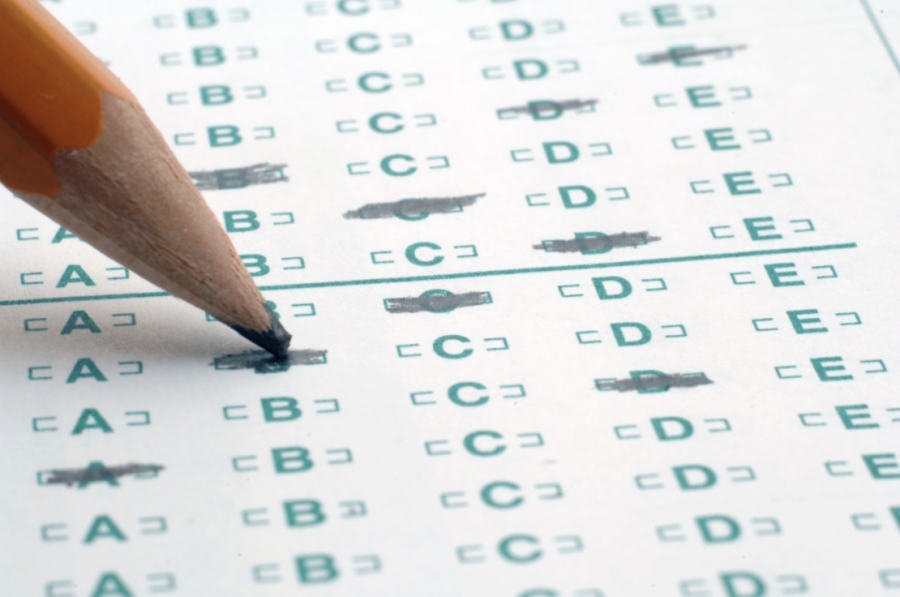What does the future hold for standardized testing?
December 10, 2021
Taking a three and a half hour long test is probably the last thing a highschooler wants to be doing on their Saturday morning. The ACT is composed of 4 sections: English, Math, Reading, and Science. The SAT also has 4 sections: reading, writing and language, math with calculator, and math without a calculator.
Traditionally, these two tests have played a major role in the college application process. However, after the first wave of COVID-19 hit, submitting an ACTor SAT score became optional in the application process for many colleges.
For the class of 2021, only 43% of student applicants submitted their test scores, as opposed to 77% the year prior. I conducted my own survey on the senior class, asking if students decided to submit their test scores. Interestingly enough, the data I obtained from my survey was quite similar. 48.1% of the students I surveyed decided to submit their test scores, while the other 51.9% of students decided to exclude their test score from their application.
Prior to the pandemic, 1,050 schools had already declared a test-optional policy. When Covid-19 hit, nearly all colleges in the country became test optional and around 75% of universities kept that policy for the class of 2022. A few schools, in fact, have gone test-blind, meaning that they won’t even accept a test score.
Many students support the new policy. “I honestly don’t really see the need for standardized testing. It doesn’t show who you are as a person as opposed to your GPA, classes, activities, and your essays,” senior Molly Bondoc said.
Many people argue that standardized testing is unfair to begin with, as the testing system favors students who come from wealthier communities or school systems and provides less opportunities for students that come from low-income households.
But meanwhile, standardized testing has been a part of the American education system since the 1800’s. We have to ask ourselves if banning standardized testing overall is really worth it.
“I don’t think we should necessarily ban it. I think what we have right now in terms of going test-optional is fair. It’s an easier way for admission officers to measure our previous knowledge and where we can grow. Getting rid of it would permanently change the American education system,” senior Isabella Kohout said.
Still, as of right now, it is a little too early to predict if the majority of schools will remain test optional for the next couple of years, if not permanently.
With an exhausting yet exciting college application process wrapping up in January for the class of 2022, it is safe to say that one thing I have learned is that every student is different and showcases their strengths in different ways. Some shine through their essays, some through their sports, some through their leadership skills and others with their grades. Regardless of the future of standardized testing in the college application process, to all of the juniors and underclassmen reading, please remember that you are not defined by a test score.







